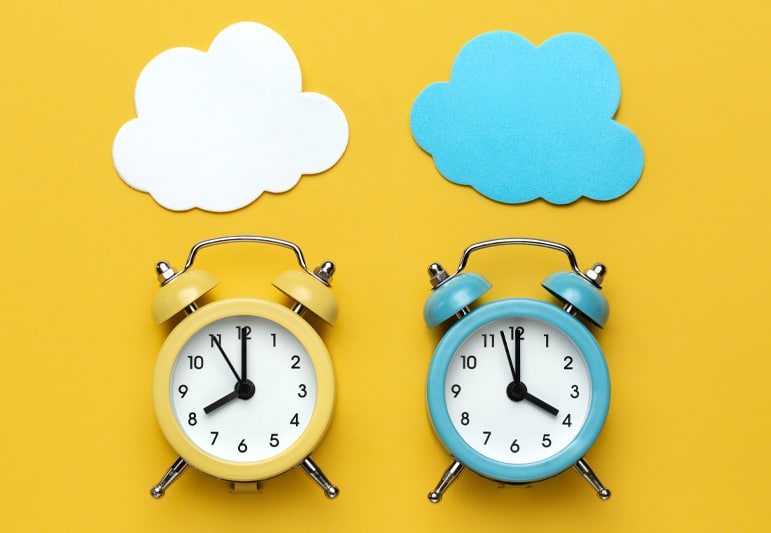When I was younger I was better at leisure. Maybe this was because I had more energy, or because there were fewer distractions from things like social media and videos-on-demand and newsfeeds and every other feed – all these time-suckers lying in wait within hand’s reach of a smartphone. Now I seem better at wasting time.
Recently I took a flight from Chicago to Los Angeles, and back three days later. How I spend my time on my flights represents how I spend my time overall, both how I spend it well and how I spend it poorly. My activities in flight helped me clarify the differences between spending time in leisure versus in waste, and how one often shades into the other. I learned that leisure vs. wasted time is not necessarily defined by which activity I engage in; rather it’s how I engage in that activity and what role it plays in my life. Let me illustrate through the four and a half hours I spent on my way to LA.
For the first 90 minutes I slept. I had a very early flight and was glad I could catch up on sleep. Sleeping on a flight can be time well spent or poorly spent depending on how I spent the time before or after the flight that I should have used for sleeping but didn’t. In this case, the evening before I stayed up late to catch up on work-related tasks before my trip. In this case, my sleeping on the flight was time well spent because I substituted it for other times. So, in this instance, I used my time well. The next half hour I drank some water, ate a snack, and used the plane restroom – necessary activities; so again time well spent.
The next hour I spent looking out the window. Two hours into a flight from Chicago heading west the Rockies appear. I am strongly drawn to mapping out the world in my head, both by exploring cities on foot and viewing landscapes from airplanes. I always get a window seat and overlay what I see below me onto a mental map of the world to which I continually add detail. Similarly, when I explore new cities, I map them out in my head as I wander about. For example, after a day in, let’s say, London, I know it well enough to direct tourists who approach me, mistaking me for a local, to the sites they want to get to. So, on my flight I thoroughly enjoyed myself looking at the series of Colorado mountain ranges pass below me. So, the third hour was also well spent.
After this third hour spent looking out the window, I now felt I needed to write. I have a lot of writing projects always in progress, and – unsurprisingly – I have trouble completing them. Before the flight, I already had several ideas I jotted down that I wanted to expand upon and use part of my flight to write about them.
But I didn’t. I continued to look out the window. Now, after you pass Colorado on the way from Chicago to LA, the landscape below becomes even more interesting. Below me, Monument Valley and Navajo Mountain, rising ever majestically north of me, came into view. I recognized the stacks of the Salt River Navajo Generating Station and the Vermillion Cliffs and knew I’d be seeing the Grand Canyon in a few minutes. And the flight path did not disappoint. Just northeast of the Grand Canyon the plane veered slightly southwest and I could see the entire canyon stretch out before me.
Despite these ever-inspiring sights, by this point, I was not enjoying myself. My time was tainted with the familiar taste of procrastination: I had planned and wanted to write out the ideas I was excited to expand upon and explore further. Instead, I just kept staring out the window, all the way down to LA, from the three blindingly white points of the Ivanpah Solar Power plant to Coachella Valley, to Mount San Jacinto, and on to the San Bernardino Mountains, before the final descent. I remained stuck in this frustratingly beautiful and wasted time, preoccupied with what I should have been doing.
I learned that leisure time requires fully accepting it as a time to rest, savor, and recharge. It requires maintaining awareness and appreciation of the here and now with no push toward the what-comes-next. No matter what I do, no matter how inherently gratifying a particular activity may be, if my mind is elsewhere, then I am wasting that time. Leisure is instantly killed if it’s a way-station to something else.
So, what should I change to use my leisure time well? I learned that appreciating leisure means being more productive during the times I’m meant to work, and then planning and blocking out the time for leisure, a time during which nothing else should happen other than the leisure activity itself. It’s easy for work to bleed into what should be leisure time, thus killing any benefits it is meant to bring. Getting the most out of leisure also means using leisure to reward myself for time well spent on work activities and meeting various family obligations. And lastly, I realized it’s important to accept that the time left over when life’s work is done for the day, is not necessarily leisure time. Leisure isn’t a wastebasket category for time not spent on other activities; to truly meet its promise, leisure time needs to be treated by its own rules, as I’ve sketched out above.
I’ll end here. A walk in the woods on this breezy sunny afternoon beckons.
Until next time,
Dr. Jack
LanguageBrief
Today’s Quotes
“Time is a game played beautifully by children.”– Heraclitus
“The enjoyment of leisure would be nothing if we had only leisure. It is the joy of work well done that enables us to enjoy rest, just as it is the experiences of hunger and thirst that make food and drink such pleasures.”– Elisabeth Elliot
“Guard well your spare moments. They are like uncut diamonds. Discard them and their value will never be known. Improve them and they will become the brightest gems in a useful life.”
– Ralph Waldo Emerson







Leave A Comment